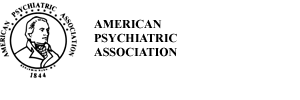
A Basic Guide to Depression
The article is one of a series of articles about depression by the American Psychiatric Association (APA). For more information about this condition, please review the “Find More Information About” section at the end of this article.
What is depression?
Depression is more than just feeling sad or a little under the weather. Depression is a mental illness that can seriously affect a person’s feelings, thought patterns, behavior and quality of life. More than 5 percent, or 15 million Americans, suffer from depression. At least one in six people will suffer from a depressive illness at least once in their lifetime.
Experts believe that there are many factors that cause depression. Chemical and nerve cell disturbances within the brain, sometimes genetically inherited, play an important role in depression. Other factors can include losing a relationship or a loved one, stressful life events, another medical illness, drinking too much alcohol or abusing drugs.
Depression has also been linked to changes in the seasons. This type of depression, which usually occurs in the fall, is called Seasonal Affective Disorder (SAD). Researchers believe SAD may be caused by decreased sunlight as the days shorten.
What are the signs and symptoms of depression?
Symptoms of depression include:
- Ongoing sad, anxious or empty feelings
- A loss of interest in activities that normally are pleasurable, including sex
- Appetite and weight changes (either loss or gain)
- Sleep problems (insomnia, early morning wakening or oversleeping)
- Irritability
- A loss of energy and a sense of fatigue, or being “slowed down”
- Feelings of guilt, worthlessness and helplessness
- Feelings of hopelessness and pessimism
- Difficulty in concentrating, remembering and making decisions
- Thoughts of death or suicide, or suicide attempts
- Ongoing body aches and pains or problems with digestion that are not caused by physical disease
How is depression treated?
Depression often is treated with medication, psychotherapy or a combination of both. People with SAD are treated with light therapy. In the most severe cases of depression, when the person cannot function and safety is an issue, a brief hospital stay may be necessary.
There are many antidepressant medications that work to restore the balance and effectiveness of chemicals and nerve cells in the brain. These medications help people feel and function better. Some of the newer antidepressants (called serotonin reuptake inhibitors, or SRIs) have fewer side effects than older kinds (called tricyclic antidepressants, or TCAs), and they can begin to work after two or three weeks of use.
Psychotherapy is a series of private talks with a psychiatrist where a person discusses the feelings, thoughts and behavior that cause difficulty. The goal of psychotherapy is to help people understand and master their problems so they can function better. It can help a depressed person change negative thought or behavior patterns.
Whether caused by chemical and nerve cell imbalances, emotional events or seasonal changes, depression can be diagnosed and effectively treated.
Find more information about…
Depression:
- See “A Closer Look at Major Depression” in Medem’s Medical Library under “Mental Health – Depression“
Psychiatrists:
- See “Let’s Talk Facts About Choosing a Psychiatrist” in Medem’s Medical Library under “Mental Health – Introduction to Psychiatry”
© Copyright 2001 Medem™, Inc. and the American Psychiatric Association
